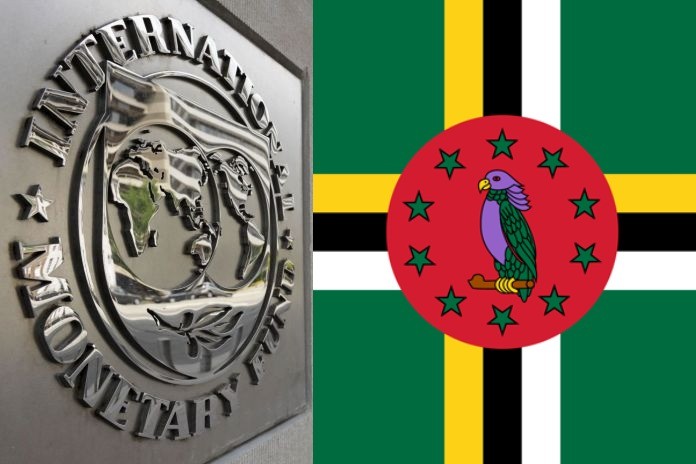- Dominican economy’s full recovery to pre-pandemic levels.
- Dominica’s economic outlook is positive, predicated on a continued recovery in tourism and the implementation of the country’s economic modernization and resilience-building agenda.
USA, DOMINICA – On May 31, 2024, the executive board of the International Monetary Fund (IMF) concluded the Article IV consultation with Dominica.
The Dominican economy has recovered strongly following the pandemic shock. Real GDP grew by 5.6 percent in 2022 and an estimated 4.7 percent in 2023 returning to pre-pandemic output levels. These outturns reflect a rebound in tourism supported by public investment and buoyant Citizenship by Investment (CBI) revenues.
Inflation fell from its 2022 peak of 9¾ percent to 2¼ percent by end of 2023, largely on account of softening world commodity prices.
Fiscal and external imbalances have narrowed in recent years but remain large. The fiscal primary balance improved by 1.3 percentage points to a deficit of 4¼ percent of GDP in FY2022/23, reflecting higher CBI revenues that were partly offset by higher capital spending. Public debt has steadily declined from its pandemic peak but remains elevated above 100 percent of GDP. The current account (CA) deficit had been narrowing since 2019 but widened to 33.7 percent of GDP in 2023, as higher imports for the construction of strategic infrastructure projects outweighed higher tourism receipts.
The financial system remains stable. Banks are well capitalized and liquid, although non-performing loans are elevated, and provisioning has fallen below the Eastern Caribbean Central Bank’s (ECCB’s) regional prudential requirement. Recapitalization of credit unions is continuing. Credit to the private sector has lagged nominal GDP growth, while bank exposure to the public sector has decreased but remains elevated.
Dominica’s economic outlook is positive, predicated on a continued recovery in tourism and the implementation of the country’s economic modernization and resilience-building agenda.
The transition to local geothermal energy production, as well as expanded airport and hotel capacity, is expected to sustain economic activity, reduce the dependency on fossil fuels, and boost tourism. The current account deficit is expected to narrow as tourism exports expand while import growth slows as the construction of large infrastructure projects is gradually completed. Meanwhile, public debt is set to decline gradually in coming years supported by prudent fiscal management but remains vulnerable to shocks.

Executive directors agreed with the thrust of the staff appraisal. Directors welcomed the Dominican economy’s full recovery to pre-pandemic levels. They noted, however, that fiscal and external imbalances remain high with risks – including from external shocks, natural disasters, and volatile Citizenship by Investment (CBI) revenues – tilted to the downside. Directors concurred that the ongoing economic recovery offers an opportunity to rebuild buffers and advance reforms to modernize the economy and foster sustainable and resilient growth.
Directors noted that a more ambitious fiscal consolidation would help Dominica meet the fiscal rule, self-insure against disaster risks, and reduce debt vulnerabilities.
They recommended broadening the non-CBI revenue base by streamlining tax incentives, reintroducing the VAT applied to the electricity price fuel surcharge, equalizing diesel and gasoline excise rates, and strengthening tax administration and compliance management. Removing the stamp duty on outbound money transfers would also be important. Directors saw scope to rationalize inefficient spending while prioritizing critical public investments with economic returns. They encouraged tariff adjustments on key public services to reduce the fiscal costs of state-owned enterprises. Directors concurred that Dominica’s financing strategy should continue to prioritize non-debt-creating flows.
Directors underscored the need to protect the most vulnerable by enhancing the efficiency and sustainability of the social protection framework, including by better targeting social assistance programs. Reforming the pension scheme to ensure its long-term sustainability amid rising demographic pressures would also be important.
Directors emphasized the need to strengthen financial system oversight and reduce balance sheet vulnerabilities, in particular with regard to credit unions. Granting statutory independence to the Financial Services Unit would help improve its effectiveness and support risk-based supervision of non-bank financial institutions. Directors underscored the importance of addressing structural impediments to financial intermediation and supported the authorities’ efforts in this regard. They encouraged further strengthening CBI program frameworks and addressing remaining AML/CFT deficiencies.
Directors welcomed Dominica’s modernization and climate adaptation agenda, including the authorities’ Climate Resilience and Recovery Plan. They noted that the ongoing transition to renewables alongside reforms to improve the business environment and address labor market frictions would further enhance competitiveness and growth prospects. Directors underscored the importance of improving statistical compilation, tax administration, and public financial management frameworks including CBI reporting systems to enhance policy management. They encouraged the authorities to leverage IMF technical assistance to support their reform efforts.
It is expected that the next Article IV consultation with Dominica will be held on the standard 12-month cycle.





